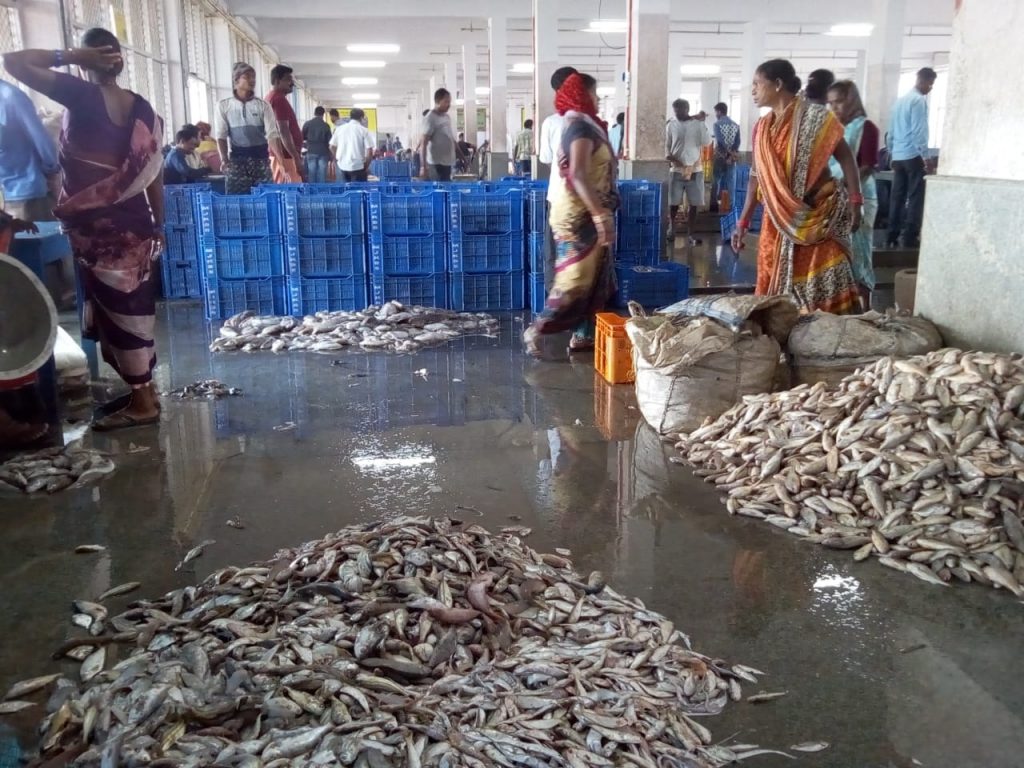Paradip: Fish population in the country is under serious threat as over 65 per cent of fish species (varieties) available in various water bodies like rivers and sea have become extinct due to climate change, rampant use of plastic, sea pollution and illegal fishing, a report said.
This has come at a time when countries all over the globe are observing World Fishery Day November 21, Thursday.
According to a 2010 survey report, around 8, 64,550 fishermen live on the eastern coastline. Fisheries play a vital role in the economy of the country with the activity contributing about 1 per cent to the GDP.
India has 8,129 kilometres of marine coastline, 3,827 fishing villages and 1,914 traditional fish landing centres. India’s freshwater resources consist of 1,95,210 kilometres of rivers and canals, 2.9 million hectares of minor and major reservoirs, 2.4 million hectares of ponds and lakes, and about 0.8 million hectares of flood plain wetlands and water bodies. As of 2010, the marine and freshwater resources offered a combined sustainable catch fishing potential of over 4 million metric tonnes of fish.
However, with change in time, fish which forms an integral part of livelihood and economy are under serious threat as over 65 per cent of fish species have become extinct in these years. The matter came to fore from a report of Netfish, a unit of Union Fishery department.
The extinction of fish species is not limited to the country alone but is observed all over the globe. “Climate change, rampant use of plastics and illegal fishing are responsible for the extinction of fish species,” scientist Annada Bhusan Kar of Netfish said.
Countries all over the globe celebrate World Fisheries Day every year November 21 to highlight the importance of healthy oceanic ecosystems and ensure sustainable stocks of fisheries in the world.
The day is celebrated through rallies, workshops, public meetings, cultural dramas, exhibition, and music shows with the participation of the fishing community, export agencies, processing centres and at the government-level at various places.
However, fish population continues to decline every year with many fish species becoming extinct.
Madhumaya Samal, a marine fishery officer, said that steps are being taken by the government to check illegal fishing. He further said as part of these efforts, a fishing ban is imposed from April 15 to June 15 for two months in Paradip and fishermen are advised not to adopt illegal means while fishing.
Gill nets: Ecologically & economically disastrous
Gayadhar Jena, coordinator of Netfish, said that in the age of competitive fishing many fishermen are catching fish from rivers and seas with the help of gill nets. He explained that a gill net is a wall of netting that hangs in the water column, typically made of monofilament or multifilament nylon. Mesh sizes are designed to allow fish to get only their head through the netting but not their body. The fish’s gills then get caught in the mesh as the fish tries to back out of the net. The fishermen catching fish with the help of gill net sell 35 per cent of the catch in the market while the rest 65 per cent of the fish dies in the net. He pointed out that Bangladesh has made some laws banning catching of fingerlings. Also, no fishing can take place during the completion of the lifecycle of a fish.
